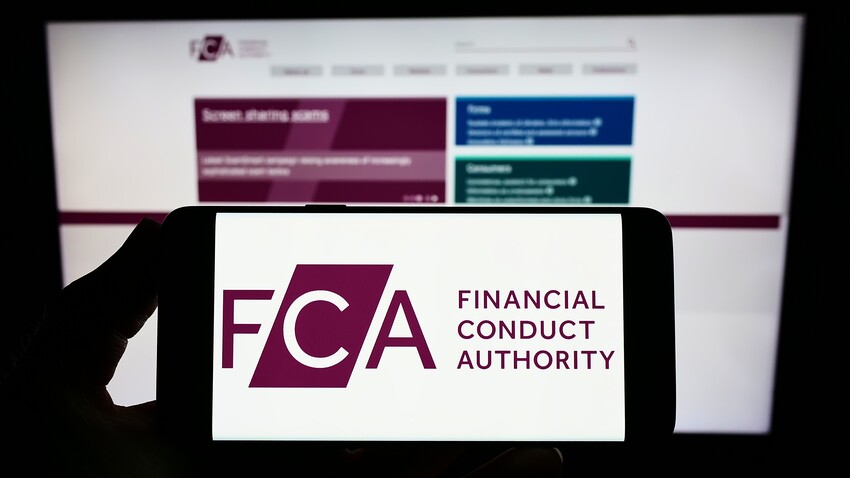
posted 5th July 2025
For over two decades, hundreds of thousands of timeshare owners across the UK and Europe have been ensnared in a cycle of financial loss, fraud, and unkept promises.
Many of these individuals—often retirees or vulnerable consumers—were misled into buying timeshares under high-pressure sales tactics, obscure legal arrangements, and false assurances of investment potential or resale value.

Despite clear and growing evidence of systemic malpractice within the timeshare industry, the UK's Financial Conduct Authority (FCA) has remained conspicuously inactive.
This long-standing inaction represents not just a regulatory oversight, but a serious institutional failure to uphold the FCA's core mandate: protecting consumers and ensuring market integrity.
A Known Problem Ignored.
Concerns around timeshare mis-selling and fraud began surfacing prominently in the late 1990s and early 2000s.

Numerous investigative reports, legal challenges, and consumer complaints detailed a grim picture—contracts with no exit routes, aggressive marketing strategies, false promises of "investment returns", and hidden maintenance fees that escalated annually.
Many consumers reported being coerced into signing contracts they didn't fully understand, often in foreign jurisdictions where redress was nearly impossible.
By the mid-2000s, watchdog groups, independent solicitors, and even some Members of Parliament were calling for regulatory intervention.

The evidence was clear: consumers were being systematically deceived. Despite this, the FCA, which assumed oversight of consumer credit from the Office of Fair Trading in 2014, failed to take meaningful action even as more cases surfaced.
It continued to license, or at the very least, ignore many financial advisors and firms with direct ties to discredited timeshare schemes.
Instead of the FCA taking responsibility and action, they took the easy route and put the crumbling Financial Ombudsman Service in charge of deciding on outcomes, which they weren't qualified to oversee.

Regulatory Apathy or Industry Capture?
The FCA's passive stance has raised questions about its independence and priorities. Was this inaction due to bureaucratic inertia, lack of political will, or something more concerning—regulatory capture by powerful industry interests?
Rather than launching widespread investigations or tightening regulations to protect consumers, the FCA allowed a regulatory grey zone to persist. The consequence: companies and their legal enablers exploited loopholes and jurisdictional ambiguity to continue their operations largely unhindered.

Even as Spanish and other European courts began ruling against timeshare companies for unlawful contracts and consumer rights violations, the UK's financial regulator maintained silence.
In effect, it failed to enforce basic protections for UK citizens—many of whom were elderly and on fixed incomes—leaving them with long-term debt and unusable holiday properties.

The Cost of Inaction.
The cost of the FCA's failure is staggering, both financially and psychologically. Many victims have lost tens of thousands of pounds, drained their savings, and spent years battling in foreign legal systems or falling prey to further scams disguised as "exit solutions." The emotional toll—stress, anxiety, even suicidal ideation in extreme cases—has left deep scars.
The ripple effects have also undermined public trust in regulatory institutions. If the FCA cannot be relied upon to protect ordinary citizens from clear and sustained patterns of abuse, what confidence can the public place in its oversight of more complex financial sectors?

Calls for Accountability.
Today, victims and advocacy groups are calling not just for restitution, but for a formal inquiry into the FCA's handling of the timeshare scandal. There are demands for:
- An independent review of the FCA's knowledge of and response to timeshare fraud dating back two decades.
- Clear regulatory reforms, ensuring that timeshare schemes are subject to the same consumer protection laws as other financial products.
- Criminal investigations, where appropriate, into fraudulent practices and any enabling actions by licensed financial professionals.

Conclusion: A Reckoning Overdue.
The FCA's failure to act decisively against known timeshare abuses is not a story of isolated incompetence—it is a damning case of regulatory neglect with long-lasting consequences for real people. Twenty years of silence is not just unacceptable—it's indefensible.
A public reckoning is overdue. The victims deserve justice. And the FCA owes the British public an honest accounting of why it turned a blind eye to one of the most sustained consumer frauds in recent memory.

What Can We Do To Help?
Over the last ten years, we have helped thousands of timeshare owners reclaim what is rightfully theirs. We have battled against the timeshare industry, Banks, bureaucracy, and third-party associates created to cover up the timeshare misselling scandal. To our astonishment, we have also had to battle against the regulators that are in place to protect consumers from economic abuse. There is no doubt that there has been a cover-up, and these people need to be held to account. If you wish to cancel your timeshare contract or claim compensation, get in touch.




